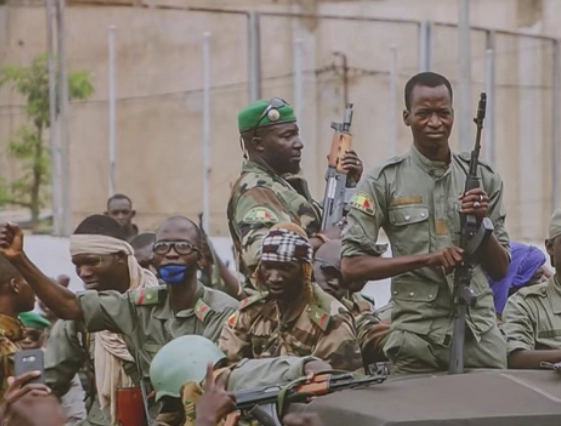Gold miners keep operating in Mali despite coup

Gold miners operating in Mali said they are continuing to operate while monitoring a political crisis that shut the country’s borders and hit share prices on Wednesday.
Malian President Ibrahim Boubacar Keita resigned after being detained by a military junta, prompting immediate international criticism despite the group’s pledge to shepherd a democratic transition.
The coup capped weeks of protests demanding that he step down. Keita, 75, has faced opposition criticism for alleged corruption and nepotism within his administration, and the mishandling of an escalating Islamist insurgency in the West African nation.
Gold operations in the vast, land-locked nation are located in the south and west, hundreds of kilometres from the capital Bamako where the coup took place
B2Gold, Resolute Mining, AngloGold Ashanti, Hummingbird Resources, Roscan and Cora Gold said operations and staff were unaffected, but traders sold shares because of increased political risk.
Barrick, the biggest miner in Mali, said its Loulo-Gounkoto mining complex had not been affected by the political situation.
“The complex has an adequate inventory for its foreseeable requirements and management has taken steps to secure its supply lines,” Barrick said in a statement.
Resolute Mining shares fell by more than 17%, Hummingbird dropped 10%, B2Gold fell 8%, AngloGold Ashanti lost 3% and Barrick fell 2.6%.
Midday Wednesday, Roscan’s stock was up 11% after company said that is closely monitoring the political situation and that has added a fifth drill rig to its exploration program.
“I have always monitored how much exposure I have in West Africa and in each country in the region because there is more risk and this coup reminds you of that,” a London-based gold investor told Reuters, asking not to be named.
Gold operations in the vast, land-locked nation are located in the south and west, hundreds of kilometres from the capital Bamako where the coup took place.
Logistics
Many miners continued to operate during a 2012 coup. However, the Economic Community of West African States (ECOWAS) has ordered the closure of land and air borders with Mali.
That complicates logistics for the mining sector, which accounted for 9.7% of Mali’s GDP in 2019.
B2Gold said its Fekola mine had sufficient supplies to maintain activities through the end of the third quarter “and beyond if needed.”
Africa’s fourth-biggest producer of gold, Mali’s output rose to 71.1 tonnes in 2019, the government has said, and the state earned revenue of 403.6 billion central Africa Francs (CFA) from gold mining companies.
“Certainly a country in which there have been two coups in the last decade is not something that reassures mining investors,” Lori-Anne Theroux-Benoni, a Dakar-based analyst at Institute for Security Studies told Bloomberg.
“I would be slightly worried about the level of risk there and especially the rapid change in who are the interlocutors at the level of ministry of mining with the changes in government,” Theroux-Benoni said.
“In the longer term, there are more clouds for mining investors as this is the second coup in eight years. It will add to an already very high risk premium that people associate with Mali,” Vincent Rouget, analyst at Control Risks Group told Reuters.
ECOWAS has intervened militarily in the past, sending troops to Gambia in 2017 to help end a political crisis there.
South African President Cyril Ramaphosa, the current chairman of the African Union, called for an “immediate return to civilian rule” and for the military to return to their barracks. He also demanded the military release Keita and other government officials including Prime Minister Boubou Cisse who are still being detained.

